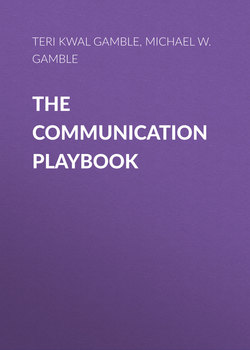Читать книгу The Communication Playbook - Teri Kwal Gamble - Страница 131
На сайте Литреса книга снята с продажи.
Resilience and Grit
ОглавлениеAre you an optimist or a pessimist? When it comes to thinking about the self and who we want to be today, some of us categorize ourselves as optimists and others as pessimists.
If we are an optimist and suffer a defeat, we view it as a temporary setback brought about by circumstances, bad luck, or other people. Optimists are resilient and gritty; they do not view defeat as a result of some insurmountable innate inability. Psychologist Albert Bandura tells us that an optimistic belief in our own possibilities and competence endows us with feelings of self-efficacy. (Note: We are speaking about optimism, not unrealistic optimism based on overconfidence.) When we have strong feelings of self-efficacy, we are more persistent, less anxious, and less depressed. We don’t dwell on our inadequacy when something goes wrong; instead, we seek a solution. If we are persistent, we are apt to accomplish more. And as we do so, our belief in ourselves grows.31
Unlike optimists, pessimists lack resilience and believe that bad events are their own fault, will last, and will undermine whatever they do. Rather than believe they can control their own destiny, pessimists believe that outside forces determine their fate. In effect, pessimists “can’t because they think they can’t,” while optimists “can because they think they can.” Psychologist Martin Seligman tells this story:
We tested the swim team at the University of California at Berkeley to find out which swimmers were optimists and which were pessimists. To test the effects of attitude, we had the coach “defeat” each one: After a swimmer finished a heat, the coach told him his time—but it wasn’t his real time. The coach had falsified it, making it significantly slower. The optimists responded by swimming their next heat faster; the pessimists went slower on their next heat.32
